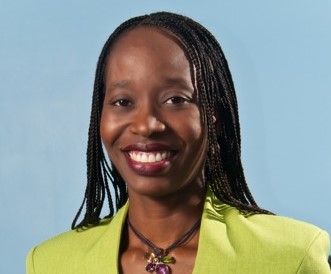
The safety of all persons in schools across the Caribbean matters.
This was emphasised today by Executive Director of the Caribbean Disaster and Emergency Management Agency (CDEMA), Elizabeth Riley, at the start of a three-day workshop on the Model Safe Schools Programme (MSSP), at the Ministry of Education, Technological and Vocational Training (METVT), Elsie Payne Complex.
Tracing the history of the development of the MSSP, the Executive Director noted that throughout the Caribbean the educational sector was highly vulnerable to the range of natural hazards that threatens all countries.
Adding that over the last two decades this sector had experienced significant damage and losses as a result, she referred to the havoc wreaked in Dominica by Hurricane Maria in September 2017 – a third of government-owned schools went out of operation.
Ms. Riley further alluded to the 2021 eruption of La Soufriere Volcano in St. Vincent that brought with it a significant ash fall event in Barbados, while in the midst of a COVID-19 pandemic, and the effects of Hurricane Elsa on the island, last year. And, she stressed that with climate change in motion and gaining momentum, these all reinforced the importance of the MSSP.
Participants at the workshop came from varied backgrounds, including teaching, disaster management, the fire service, the Barbados National Standards Institution and entities within the METVT headquarters.
While highlighting to them that governments spend a significant part of their budgets on educational institutions, the CDEMA official noted the desire for growth in human capital was heavily reliant on the nature of investment in schools and stressed: “Thus efforts to make educational institutions safe, green and sustainable can pay huge dividends if appropriately strategised, implemented and sustained. It is for this reason that the safe schools programme is a flagship CDEMA programme.”
She noted that over the years, CDEMA had worked collaboratively with partners to develop a shared vision and a pathway to achieving school safety through the Caribbean Safe Schools Initiative, which was launched in 2017, along with the Regional Roadmap for School Safety.
She further acknowledged the political commitment by leaders, since its inception, and noted that 18 Caribbean countries had already signed on to the Antigua and Barbuda Declaration on School Safety.
Adding that CDEMA had also worked on governance, policy and partnerships, Ms. Riley said: “At the regional level, the Safe Schools Working Group of our Educational Sector Subcommittee was established in 2019. The Safe Schools Working Group is the institutional home of like-minded organisations and supports a harmonised approach to managing systemic risks that affect the education sector, and has been working continuously to build sector resilience. At the national level, CDEMA has always supported the development of Safe School policies and the establishment of Safe School Programme Committees in a number of our participating states.”
Partners in the programme, including the University of Technology – Jamaica, the METVT and funding agencies were commended. She further noted that, since 2017, US $2.5 million had been mobilised through the Caribbean Development Bank, the Government of Norway, UNICEF and USAID, in support of the programme.
Pointing out that the MSSP could only realise its goals if individuals in participating states are appropriately trained to manage and execute it, the CDEMA head noted that the three-day course had three major elements to ensure its implementation and success.
And, she added: “The course of study offers new knowledge and skills which would contribute to the mainstreaming of disaster risk reduction techniques in the management, maintenance and development of educational facilities.”
